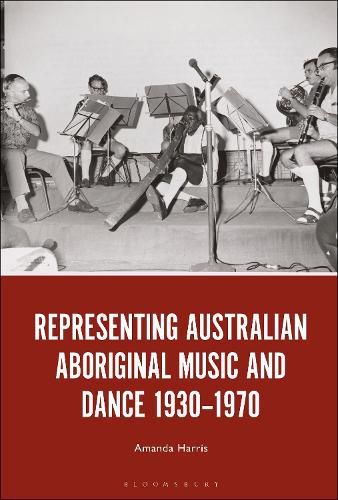Readings Newsletter
Become a Readings Member to make your shopping experience even easier.
Sign in or sign up for free!
You’re not far away from qualifying for FREE standard shipping within Australia
You’ve qualified for FREE standard shipping within Australia
The cart is loading…






Shortlisted for the 2021 Prime Minister’s Literary Award for Australian History.
Representing Australian Aboriginal Music and Dance 1930-1970 offers a rethinking of recent Australian music history. Amanda Harris presents accounts of Aboriginal music and dance by Aboriginal performers on public stages. Harris also historicizes the practices of non-Indigenous art music composers evoking Aboriginal music in their works, placing this in the context of emerging cultural institutions and policy frameworks. Centralizing auditory worlds and audio-visual evidence, Harris shows the direct relationship between the limits on Aboriginal people’s mobility and non-Indigenous representations of Aboriginal culture.
This book seeks to listen to Aboriginal accounts of disruption and continuation of Aboriginal cultural practices and features contributions from Aboriginal scholars Shannon Foster, Tiriki Onus and Nardi Simpson as personal interpretations of their family and community histories. Contextualizing recent music and dance practices in broader histories of policy, settler colonial structures, and postcolonizing efforts, the book offers a new lens on the development of Australian musical cultures.
$9.00 standard shipping within Australia
FREE standard shipping within Australia for orders over $100.00
Express & International shipping calculated at checkout
Shortlisted for the 2021 Prime Minister’s Literary Award for Australian History.
Representing Australian Aboriginal Music and Dance 1930-1970 offers a rethinking of recent Australian music history. Amanda Harris presents accounts of Aboriginal music and dance by Aboriginal performers on public stages. Harris also historicizes the practices of non-Indigenous art music composers evoking Aboriginal music in their works, placing this in the context of emerging cultural institutions and policy frameworks. Centralizing auditory worlds and audio-visual evidence, Harris shows the direct relationship between the limits on Aboriginal people’s mobility and non-Indigenous representations of Aboriginal culture.
This book seeks to listen to Aboriginal accounts of disruption and continuation of Aboriginal cultural practices and features contributions from Aboriginal scholars Shannon Foster, Tiriki Onus and Nardi Simpson as personal interpretations of their family and community histories. Contextualizing recent music and dance practices in broader histories of policy, settler colonial structures, and postcolonizing efforts, the book offers a new lens on the development of Australian musical cultures.